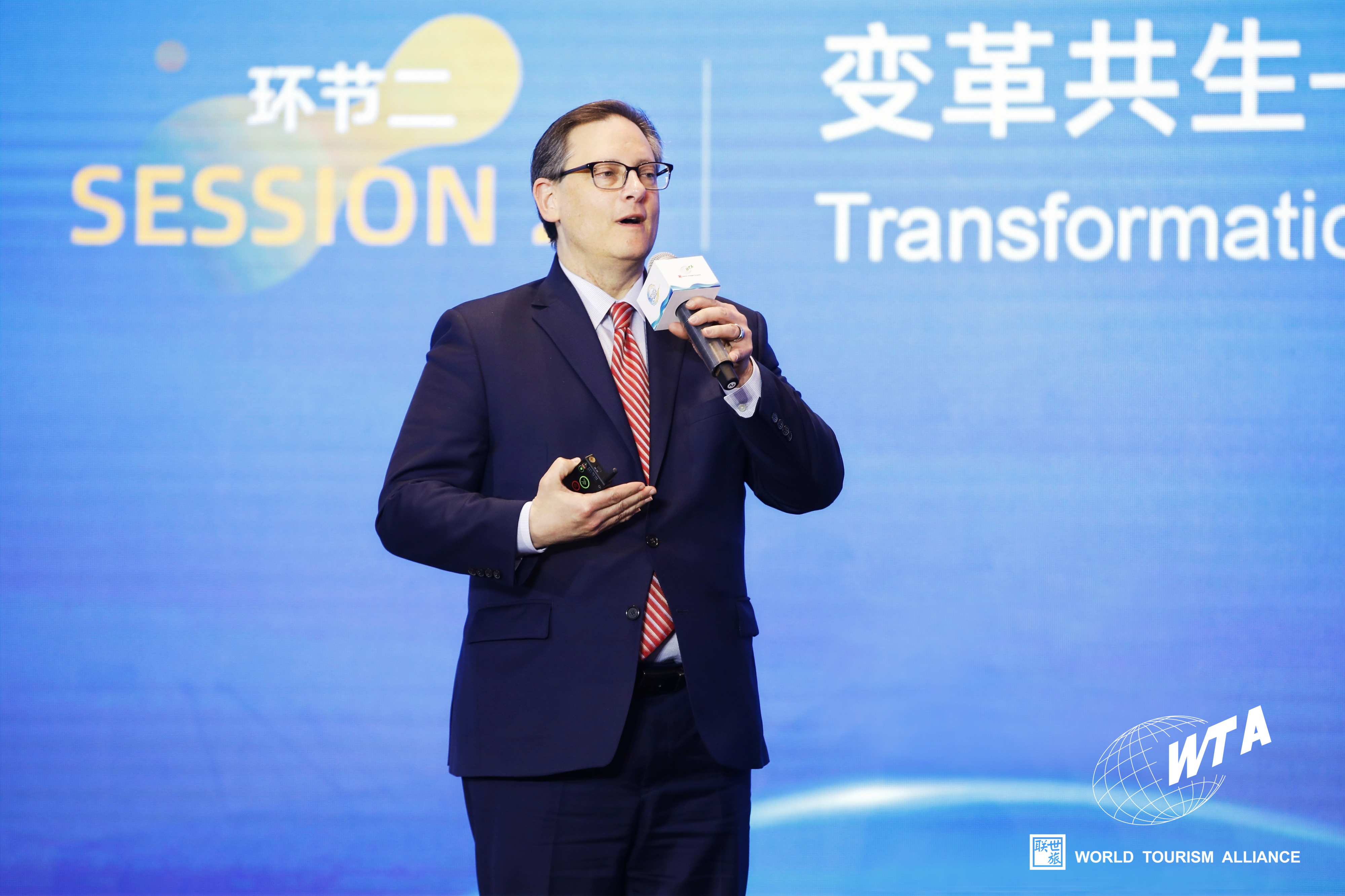2023-11-15

In a pivotal segment of the 2023 WTA • Xianghu Dialogue titled “Win-Win Cooperation: Tourism Links the World”, Mr. Adam BURKE, WTA Vice Chair, President and CEO of Los Angeles Tourism & Convention Board, shared his insights on the “Building a Resilient and Sustainable Future”.
Here are excerpts from his speech:
In an inspiring development, China’s President Xi Jinping had a historic meeting with Joe Biden, the President of the United States, signaling a positive step forward in international relations. This event holds particular significance for the Los Angeles Tourism & Convention Board, which has proudly maintained a presence in China for 17 years with offices in Beijing, Shanghai, Chengdu, and Guangzhou. I sincerely hope that tourism can become a bridge between the peoples of both nations, fostering mutual understanding and shared experiences.
Despite the challenges posed by the pandemic, our four offices in China have remained operational. We are very proud to have shared both good times and bad with our colleagues and peers in China. This commitment will play a crucial role in the collaborative efforts for the recovery of the tourism industry.
We all know that cultural exchange is at the heart of the tourism industry. Thanks to the long-standing cultural exchanges between China and the United States, China has become our “No. 1 overseas market”. In 2019, we welcomed 1.2 million Chinese tourists to Los Angeles. The full recovery of Los Angeles’ tourism industry hinges on the return of Chinese tourists.
The key to attracting tourists is to make them feel welcome and at home. However, currently and in the future, “over-tourism” will be a major challenge facing the development of the tourism industry. Over-tourism occurs when local community residents feel that the costs brought by tourists outweigh the benefits. This issue calls for better communication between the tourism sector and local communities.
To this end, last year we conducted the first resident sentiment study in Los Angeles and found that many community residents are very concerned about the impact of tourists on local life, which is a challenge for us. Not long ago, Florida, the most developed state in the U.S. tourism industry, cut off funding for its local tourism office and shut down the agency, a trend that is very unsettling.
The pandemic hit Los Angeles hard, with 200,000 residents losing jobs and the local business community suffering a loss of $42.3 billion in total revenue. Of course, we have also heard a lot, especially in the United States, about the recovery of the tourism industry. In reality, the recovery of the tourism industry is a relatively slow process, and as a gateway tourist destination, Los Angeles may still need 24 months to fully recover.
In the current situation where it has not fully recovered, tourism is still the fourth largest employment industry in Los Angeles, with 558,600 people employed in tourism and related industries. As a community built around the tourism industry, Los Angeles’ commerce sector has developed rapidly, with a total business revenue of $34.5 billion, taxes of $3 billion, contributing municipal service expenditures of $300 million, and bringing tax savings of $893 per household.
The mission of the Los Angeles Tourism is to improve the quality of life for all Los Angeles residents through the economic and community benefits of tourism. In Los Angeles, the development of the tourism industry relies heavily on our community. Given the city’s diversity, with residents from over 140 countries speaking more than 120 different languages, Los Angeles is uniquely positioned to welcome tourists from all over the world, ensuring they feel truly at home.
As Saint Augustine said, “The world is a book and those who do not travel read only one page.” We hope that by looking back at the past and looking forward to the future, we can jointly tell the story of the tourism industry, read the book of “travel together”, and jointly build a resilient and sustainable future.